Every part of a vehicle is important in optimizing the performance and fuel economy of an automobile. One such part is the wheel bearing which is often ignored and considered as an auxiliary component. A worn or damaged wheel bearing affects many aspects of the vehicle, including fuel consumption. In this article, we will somewhat objectively take a closer look at wheel bearings, including the causes, symptoms, and effects of the malfunctioning of the bearing with regard to fuel economy, the expenses involved in replacing it, and the risk involved with driving a car that has a defective wheel bearing. If you give the bearing enough attention and maintain it well, you will experience a more pleasant driving experience with a vehicle that is optimally fuel-efficient and performs well overall. So, without wasting time, let’s move on to the main question: how does a bad wheel bearing affect gas mileage, and what measures can be taken to counter this problem?
What Are the Symptoms of a Bad Wheel Bearing?
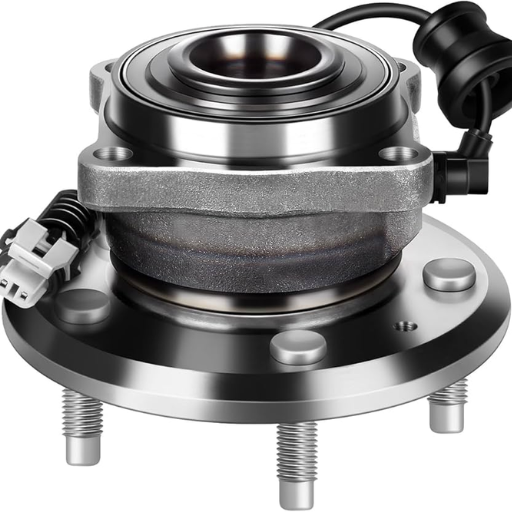
one should be able to recognize the indications of a faulty wheel bearing. Here are some telltale signs to watch out for:
- Unusual Noise: A faulty wheel bearing can be the reason behind quite many noises. Any grinding, humming, or rumbling sounds around the wheels may indicate a problem bearing. These noises would often worsen when the speed of the vehicle increases.
- Vibration: In addition to the unusual noises, there could be an odd vibration in the steering or the floorboards too. This is caused due to the poor rotation of the wheel bearing.
- Uneven Tire Wear: A loose wheel bearing can result in uneven wear of tires. So it’s quite possible to find a tire that wears out more than others which can be attributed to a bearing.
- Looseness in the Wheel: Try shaking the steering wheel or moving it about. If it seems to have a lot of play or there’s a degree of looseness to it then it is likely that there is a failing wheel bearing.
- Pulling or Drifting: A Wheel bearing may sometimes get worn out and the vehicle suddenly pulls sideways or drifts rather than steering straight. Such wear may cause an issue to the vehicle’s properties and make it difficult to straighten the wheel.
It will be wise to pay attention to these signs since steering with any of your wheels with a ruined wheel bearing can bring destruction to the vehicle and potentially drive in unsafe conditions. Therefore, if one shows these symptoms it is best to see someone who is a specialist such as a mechanic who deals with such situations and get the wheel bearings assessed and probably replaced.
How to Identify a Bad Wheel Bearing?
Consider recognizing a bad wheel bearing as it is crucial to prevent oneself from becoming an industry expert in the future as well as for improving the safety and efficacy of the vehicle. The following are certain signs which help you identify a bad wheel bearing:
- Unusual Noise: The most common sign of a faulty wheel bearing is the recurrent problem of bearing noise, which sounds like constant grinding or growling from any affected wheel. This sound is likely to become louder when the vehicle is moving faster or turning.
- Vibration or Wobble: The fault in the wheel bearing may cause the steering wheel, or the entire automobile to shake or feel a wobbly sensation. This is mostly experienced during rapid acceleration or while negotiating turns.
- Uneven Tire Wear: If there is uneven wear of the tire, the cause may be a damaged wheel bearing. It would be advisable to routinely inspect tires for uneven wear on one side or particular parts, which signifies that there is an issue with your wheel bearings.
- Pulling or Drifting: The tendency of the vehicle to drift towards one side, or move out of position when it is kept in a lateral alignmed position could be due a faulty wheel bearing. This leads to poor vehicle control when steering in a lateral direction.
A timely replacement could disrupt the equilibrium of the wheel, resulting in premature wear of other components. Additionally, a fault in the wheel component translates to malfunctioning of the vehicle. Therefore, it is advisable that if any wheel bearings malfunction, they be contacted.
Common Bad Wheel Bearing Noise and Vibrations
Let’s tackle the issue of ‘bad wheel bearing noise and vibrations’ by considering some questions that people share with me:
It is rather rare for a wheel bearing to display deterioration; however, in the event that it fails, an individual may observe a number of noises and vibrations, which may be concerning. Some of the more noticeable issues are:
- A grinding or grating sound comes from the area of the wheel.
- A hissing or gurgling noise tends to increase with an increase in the speed of the vehicle.
- Any tremor in the steering wheel or the chassis of the vehicle.
- Abnormal wearing of the tires or nosing to one side when driving.
Such symptoms are suggestive of an abnormal condition associated with the wheel bearing and warrant further investigation by a qualified professional.
Always bear in mind that these matters should be dealt with without delay not only for the optimal functioning of your automobile but also for your safety. Maintenance and checking operations performed on the vehicle on a regular basis can show and correct possible problems with the wheel bearings before they result in any more serious damages.
Signs the Bearing is Bad in Your Car
we will look at several markers that your car bearing is damaged surely:
- Unusual Noise: A chronic, growling, or rumbling sound that becomes louder at higher speeds indicates a failure in the wheel bearing. Low sounds, including hums or roars that are produced when the bearing breakdown gets worse, are often said to emanate from the wheel or the car’s body.
- Vibration or Shaking: The steering wheel and floorboards shaking when driving is one of the repercussions of a damaged wheel bearing. This resonance along which the car shakes becomes pronounced especially when one is accelerating.
- Uneven Tire Wear: Twelve thousand mileages on vehicles are indicative of disproportionate wear on certain parts which is expected of treads but the noteworthy limitation is that the brunt doesn’t land on all tires. Overall wear and brace can weaken individual tires essentially if the vehicle is overused.
- Pulling to One Side: A whir, hiss and a rumble in the car tricks the driver into the impression that their car is always carrying an excess load. Hence shifting to a single side of the steering wheel isn’t good as it irregularly centers the pulley half way which subsequently feels wobbly.
When you notice such signs the first step should always be to have your wheel bearing check up done by a qualified machinist as soon as possible. In this case, these problems may be attending to so as to avoid compromising the efficiency of the vehicle and indeed one’s safety on the vehicle. Regular maintenance and inspections can help identify and resolve wheel bearing problems before these issues become damage controlling situations.
How Does a Bad Wheel Bearing Affect Gas Mileage?
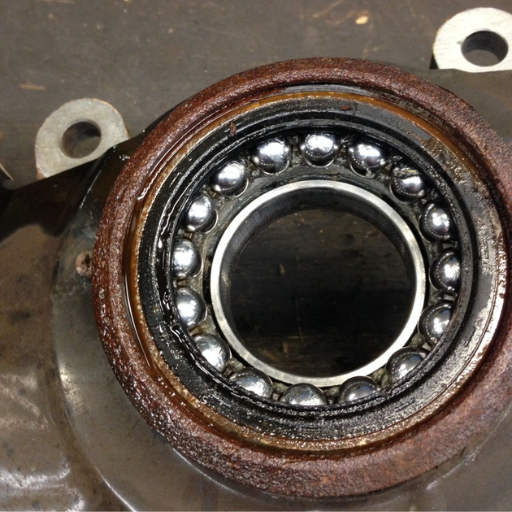
Even if a person is going to drive the car for a very short amount of time, it is recommended that they replace a bad wheel bearing as it can cause a lot of problems. A wheel bearing that does not work properly can lead to a significant increase in fuel consumption. Then, when the engine has to rotate the wheel and friction has increased due to a bad wheel bearing, fuel consumption goes up as it requires work which lowers gas mileage overall.
A failing wheel bearing can lead to a plethora of problems, a few of which are a decrease in gas mileage:
- Misalignment: A battery is crucial when it comes to maintaining allowable clearances. Possible wear should lead to mechanical misalignment of the wheel, which is because of wrong tire pressure or an imbalance in load distribution to the supports of the rotating shaft and housing. It results in uneven scuffing of the driven wheel tires as well as enhanced rolling resistance. This will, in turn, compel the engine to perform more power than required so as to move speed, in effect decreasing the fuel efficiency of the engine.
- Drag and Friction: A mismatched wheel bearing can cause drag and even more friction in the wheel assembly. This friction in turn, increases the effective load torque that the engine has to develop to overcome the drag and sustain the vehicle’s kinetic energy and hence increase its fuel consumption rate.
- Aerodynamic Effects: A cut wheel bearing clamp weight will once again result in excessive contact. If it is in any way effective in reducing wheel bearing friction level, most loose clearances are able to move enough to wobble or shake the wheel after contact. All these have an effect not only on the vehicle’s stability but also on aerodynamics, giving rise to, in turn, increased air drag. Since the effect of aerodynamic drag is greater, the engine is overstressed more and more, leading to lower gas consumption.
In conclusion, a defective wheel bearing will negatively affect the mileage and gas consumption of a vehicle. It is critical to correct the problems associated with the wheel bearings as soon as possible so that the vehicle may attain its peak performance and thereby conserve more fuel and cover greater distances.
The Impact on Mileage and Fuel Economy
As an industry expert, I believe it is of utmost importance to recognize the effect malfunctioning wheel bearings have on mileage and fuel economy. When a vehicle has worn out or damaged wheel bearings, it not only affects the stability of the vehicle but also alters the aerodynamics of the vehicle, thereby increasing the air drag. This increase in resistance from aerodynamic drag thus makes the engine work harder, thereby decreasing the gas mileage. In such cases, if a vehicle begins to consume more fuel or its mileage reduces, it could be due to the wheel bearings, which are beginning to malfunction. To get the best performance from your vehicle, address any wheel bearing problems right away as that will enhance its fuel consumption and improve the total distance your vehicle is able to cover on the road.
Why Gas Mileage Suffers with Faulty Wheel Bearings
I understand that the reason gas mileage suffers from bad wheel bearings is due to the disruption in the smooth rotation of the wheels, which causes an increase in aerodynamic drag. Bad wheel bearings are not just bad for stability, but they create drag, which means the engine has to put in extra work. Therefore, the fuel efficiency of the vehicle is reduced due to a decrease in gas mileage. It is therefore important to sort out issues with the wheel bearing systems as soon as possible for optimal performance of the vehicle, increased fuel economy, and travel as many miles as possible.
How Long Do Wheel Bearings Last?
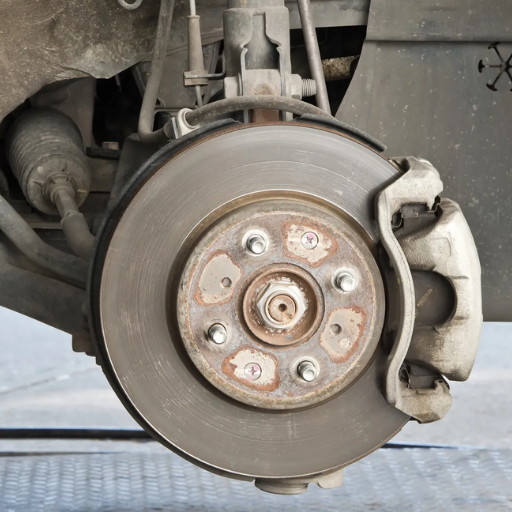
From my professional view, wheel bearing survivability has a variation based on some factors. In particular, wheel bearings are set to have a lifespan of between 100,000 to 150,000 miles. Nonetheless, this number is subject to change owing to the typical operating conditions, upkeep routines and the particular type of bearing in use.
In time, frequent use and exposure to both heat and pressure would render wheel bearings useless. Regular servicing and checkups would allow for signs of damage to the regenerating points such as replacing them, rather than damaging the complete housing. For better performance, it is best to adhere to the supplier’s recommendations and get in touch with an auto-mechanic if there are any changes in the Sounds or Oscillation. Take appropriate measures to avoid such problems and guarantee the safety of your vehicle.
Factors That Cause a Wheel Bearing to Go Bad
In my twenty years in the industry, I have relied on many practices that I know now where not the best. One notable practice is allowing full bearing failure before replacing a part. Allowing such wear ensures rotational vibration, which loads other parts and increases wear across the circumference of the hub. Allowing all of this to happen weakens a bearing, and then it starts to go bad. There are many tips that allow the prevention of premature failure, but more on that later. One last thing to note are the factors that can bring prematurity to a bearing, and they are the following:
- Lack of Lubrication: The presence of adequate lubrication will reduce friction and heat inside the wheel bearing. Inappropriate or ruined lubrication leads to faster damage and even wears out a component.
- Excessive Load or Overloading: The application of excessive weight or continuous stress on the wheel bearing causes a lot of damage that can even lead to breakage of the bearing.
- Poor Wheel Alignment: Unable to align the wheels properly results in the wheel bearing receiving excessive force which causes uneven wear, thus increasing the chances of a resultant component failure.
- Water and Contaminants: Exposure to water, dirt, debris and other corrosive chemicals can breach the wheel bearing seals and weaken the components which leads to them being worn out faster than normal.
- High Temperatures: Changes in temperature due to factors such as aggressive driving can expose the wheel bearing to high levels of heat which in turn thins out the lubricating grease, so increased levels of friction are experienced and internal components start to grind against each other.
Because of understanding these parameters and being proactive, that is through regular checks, proper lubrication, or correcting alignment, vehicle owners can prolong the service life of their rear wheel bearings and ensure maximum usefulness and safety when driving a vehicle on the road.
How to Make Rear Wheel Bearings Last Longer?
From an insider’s perspective, let me highlight some key practices that would help increase the durability of your rear wheel bearings and, at the same time,e enable these parts of the vehicle to deliver optimum performance:
- Regular Maintenance: Routine maintenance remains an invaluable activity for diagnosing possible problems that may relate to the bearings of the wheel. Once more, check and clean the bearings regularly, and repair the damaged parts or seized up components on time.
- Proper Lubrication: Routine maintenance remains an invaluable activity for diagnosing possible problems that may relate to the bearings of the wheel. Once more, check and clean the bearings regularly, and repair the damaged parts or seized up components on time.
- Alignment and Suspension: These settings must be correct so that needs to be right so the weight of the vehicle is properly distributed and the wheel bearings do not get too much strain. Be sure to regularly check the vehicle alignment and ensure that the other suspension parts are functional.
- Avoid Rough Driving Conditions: Direct driving, sudden stopping and starting and driving through extreme ‘off roading’ conditions causes excessive strain on the wheel bearings. Try as much as possible not to expose the bearings to these conditions to prolong their service life.
Take note that keeping your rear wheel bearings in check through regular maintenance and inspection will help you save whatever time remains on them. Provided that you are able to put into practice all of the measures described, future riding and travel will be absolutely comfortable and secure.
What is the Cost to Replace a Wheel Bearing?
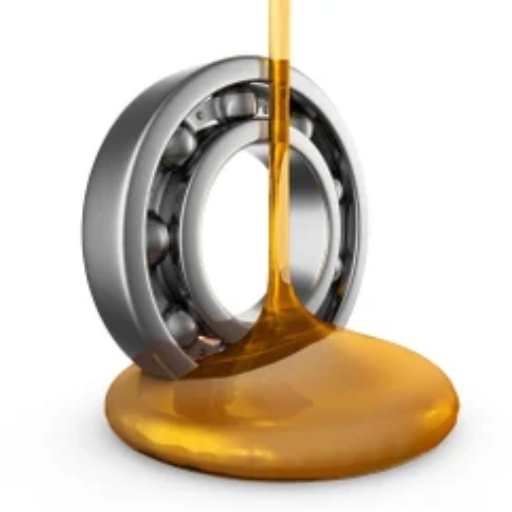
Replacing the wheel bearing or bearings incurs different costs depending on several factors, such as the type of vehicle you have, the type of services provided at a particular location, and whether it is for one or both bearings on an axle. As per estimates, replacing a wheel bearing may cost a person between $150 – $400 per bearing and this figure includes both labor and parts. This figure is merely a rough estimate and may sometimes be higher or lower depending on other situations. It is advisable to first consult a trustworthy mechanic or contact your local motor service center to obtain a rough quote for your vehicle.
Average Cost to Replace a Wheel Bearing
As a neophyte in these particular industry areas, a wheel bearing replacement entails certain estimated costs, which may begin anywhere between a hundred up to four hundred dollars, including the costs of service as well as expenses related to the spare parts that are needed to be used. But it’s worth remembering that this is merely an average, and there are some factors that affect the cost of the wheel bearing replacement, and that is the make and model of the vehicle, the site where the replacement will be conducted, and also whether the owner wants to replace either one or both bearings in an axle. To avoid hidden or excessive charges, it is recommended to talk to a certified specialist or contact your neighborhood auto repair garage for a price estimate.
When Should You Consider Wheel Bearing Replacement?
In every such industry, it is very pertinent to observe the signs that the wheel bearing may be due for replacement. If you notice any of the following, then it may be time to look into whether bearing replacement:
- Unusual Noise: In case you notice a grinding, roaring or clicking sound while the vehicle is in operational mode, it may hint worn-out wheel bearings which need replacement in such a scenario.
- Uneven Tire Wear: Due to their failing or cracked conditions, wheel bearings become an uneven wearing surface for the tires across the wheel assembly. It is recommended to check the tires if the wear is significant in a singular position or several positions irregularly.
- Steering Instability: A failing bearing which holds the wheel can provide shock or movement to the whole movement system of the vehicle which may lead to possible steering issues. It is probably indicative of a bad wheel bearing when you feel vibrations or a loose sensation in your steering wheel.
- Excessive Play or Movement: When the wheel is twitched, if there is unnoticed extra degree of movement, then there may be a risk that the wheel bearing has been defective supporting that wheel assembly.
The importance of addressing these signs as soon as they appear and getting in touch the, most trusted automotive mechanic or center is really important for safety on the road and the need to avoid inflicting additional damage to other car parts in the future.
Can Driving with a Bad Wheel Bearing Damage Other Car Parts?
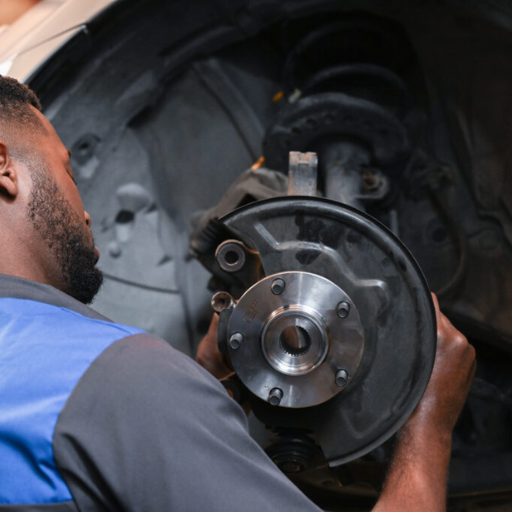
Yes, driving with a bad wheel bearing can indeed be damaging to other components of the car, as explained above. Well, this is the plain answer, but there are problems associated with the performance, safety, and overall efficiency of the car due to a broken or malfunctioning wheel bearing. The following are the hazards involved in driving a vehicle with faulty wheel bearings:
- Wheel Hub Assembly Damage:A worn-out wheel bearing amplifies the load placed on the wheel hub assembly, which bears the weight of the car. With time, the excessive stress can lead to early signs of wear out and even complete failure of the wheel hub assembly. This can cause further destruction to the suspension and its associated system.
- Brake System Compromise:The bearings of the wheels are key to supporting the smooth rotation of the wheels. However, if a wheel bearing goes bad, there is a chance that it will make the wheel wobble or be misaligned. Such conditions are bound to affect the performance of the brakes since there will be the possibility of decreased brake efficiency and increase in braking distances. In more severe cases, it may even make the brakes stop working completely, which goes without saying it is dangerous.
Prompt attention needs to be paid to indications of a faulty wheel bearing and professionals need to undertae mechanical repair of the said fault. Failure to do so may result in more complex mechanical phenomena of parts of a car, imperil you while driving, or subject your car to suboptimal operation.
Risks of Driving with Bad Wheel Bearings
There are significant risks involved with driving with bad wheel bearings, which can result in damage to both the wheel hub assembly and the entire brake assembly. This is what may happen:
- Loss of Wheel Control: If a wheel bearing has been severely damaged, the vehicle may not be able to completely control the movements of its wheels’ direction of rotation or the orientation of the wheels; in other words, the “automobile loses its control.” The wheel rotation control is critical to driving a vehicle, especially at high speeds when the inability to control steering poses a greater risk of accidents.
- Premature Wear and Failure of Wheel Hub Assembly: It is known that faulty wheel bearings employ too much strain on the wheel hub assembly, making it susceptible to strains that will ultimately lead to its failure. This failure will, in the end, cause damage to some parts of the suspension system and other parts that have a close relationship with the wheel hub assembly, which in turn will work as a risk factor to the performance and safety of the entire vehicle.
- Compromised Brake System: It is common knowledge that wheel bearings allow the wheel to rotate smoothly as well as maintain the wheel’s alignment to the correct angle. In the absence of such evenness or alignment due to importance, the brake deployment will not be even which in turn will influence the brake performance on the affected side or wheel. Depending on how uneven rotation is at times, it might even be difficult to get the vehicle to stop in a timely manner. In some circumstances, the inadequate functioning of brake bearings due to poor wheel bearings can pose a danger to other road users.
It is necessary that the poor wheel bearing signs are attended to so as to guarantee your road safety and maximize your vehicle’s performance. Surround yourself with a knowledgeable mechanic who will check and service your vehicle if you hear strange sounds, feel excessive vibrations, or have difficulty steering the vehicle. Taking these precautions can allow you to reduce the amount of damage incurred to the wheel hub assembly as well as the brake system and several other components of the vehicle, thus providing smooth and safe riding.
Potential Damage to the Wheel Hub Assembly and Brake System
We understand that there is an area of concern with regard to the chances of the wheel hub assembly and the brake system being affected due to failed wheel bearings. In a nut shell, it can be seen that a cavalier attitude towards this factor can affect not just the functioning of the vehicle but also the safety of the occupants on the road. And here is a short reply on the extent of damage which may be involved:
- Wheel Hub Assembly Damage:
- Worn bearings may be a cause for the increase in friction and temperature the wheel hub assembly experiences. Gradually this will lead to loss of material from the surfaces of the wheel bearings, spindle and the mating surfaces of the hub assembly. If not addressed, the faulty wheel hub assembly can develop into a situation where there is wheel misalignment and imbalance in tire wear distribution besides risks of fracturing away from the axle.
- Brake System Compromises:
- Wheel bearings which are not in great condition may have a negative impact on braking performance. If there is too much wear of the wheel bearings, then the wheels may become uneven with their braking causing increased distance of the stop, less braking power, and loss of control of the car itself. This is dangerous both for the car owner as well as for other road users.
Taking notice of any issues with the wheel bearings should be done without any delay to avert such problems developing to the wheel hub assembly and brake systems or any other parts that are wounded. If you have any noise or vibrations, or you feel that there is difficulty in turning the steering of your vehicle, or if there are other strange thoughts, it is important to have your automobile and all associated air conditioning fitted by a specialist. As a rule of thumb, any driving issues and other attributes must be dealt with before they become worse.
Reference
- Quora: Can bad wheel bearings affect fuel economy? – Discusses how bad wheel bearings add friction, leading to increased fuel consumption.
- Kawasaki Versys Forum: Wheel bearings and gas mileage – Explains the direct relationship between wheel bearing drag and fuel efficiency, noting up to 15% increased fuel consumption.
- Trucking Info: Can Wheel Bearing Adjustment Affect Fuel Economy? – Provides anecdotal evidence on how wheel-end tightness can significantly affect fuel economy.
Frequently Asked Questions (FAQs)
Q: How does a bad wheel bearing affect mpg?
A: A bad wheel bearing increases the friction between the wheel and the axle, causing the engine to work harder to maintain speed. This results in decreased mpg as more fuel is consumed to overcome the added resistance.
Q: What are the bad wheel-bearing symptoms that can impact gas mileage?
A: Bad wheel bearing symptoms that can affect gas mileage include a humming noise while driving, increased steering wheel vibration, and the feeling of resistance or drag. These symptoms indicate that the wheel bearing is bad and could lead to reduced fuel efficiency.
Q: Can a bad front wheel bearing affect my vehicle’s performance?
A: Yes, a bad front wheel bearing can negatively impact your vehicle’s performance by causing poor handling, increased friction, and uneven tire wear, all of which can reduce fuel efficiency and overall driving safety.
Q: How do I know if my front wheel bearing is bad?
A: If your front wheel bearing is bad, you may notice a humming noise, especially when turning the steering wheel, or feel vibrations in the steering wheel. Additionally, the noise changes with speed and may get worse over time.
Q: What happens when a wheel bearing is going bad?
A: When a wheel bearing is going bad, it leads to increased friction and heat, which can cause damage to adjacent components like the rotor and brake pads. This can result in poor fuel efficiency and potentially dangerous driving conditions.
Q: Is it safe to drive with a bad front wheel bearing?
A: It is not safe to drive with a bad front wheel bearing. A bad wheel bearing would compromise steering and braking performance, increasing the risk of accidents. It is advisable to replace the wheel bearing as soon as possible.
Q: How can I inspect the wheel bearings for damage?
A: To inspect the wheel bearings, lift the vehicle and check for play or noise by spinning the wheel. Listen to hear the noise that indicates wear or damage. If the wheel bearing is bad, it will need to be replaced to ensure safe and efficient vehicle operation.
Q: Do rear bearings affect gas mileage the same way as front bearings?
A: While rear bearings can also affect gas mileage, the impact is usually less significant compared to front bearings. However, any wheel bearing increases the friction and load on the bearing, potentially reducing mpg.
Q: What types of bearings are used in vehicles, and how do they affect fuel efficiency?
A: Vehicles typically use tapered roller bearings or other types of roller bearings. Tapered roller bearings help reduce friction and support the vehicle’s load efficiently. If these bearings are worn out, fuel efficiency can be compromised due to increased resistance.
